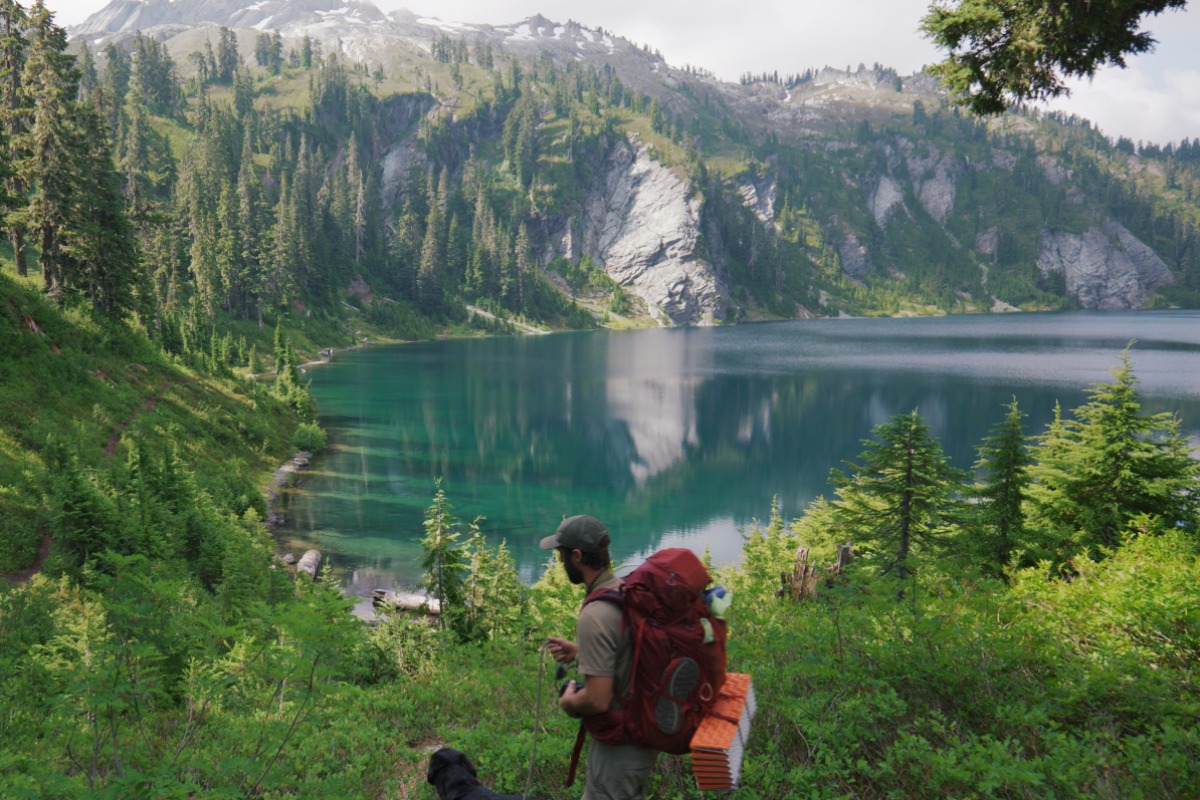North Cascades National Park
Spanning more than 500,000 acres, North Cascades National Park is one of the largest of three National Park Service units in Washington State. It was established as a National Park in 1968 in order to preserve the mountain scenery, snowfield, glaciers, waterfalls and alpine meadows that make up the North Cascades. Since then it has been nicknamed the “American Alps.”

Drive about two hours east of Bellingham, WA and you will arrive in North Cascades National Park! Known for striking mountain scenery that has led to the area being nicknamed the "American Alps."
Learn more about The North Cascades Institute Environmental Learning Center located right on Diablo Lake and how to explore the lake on an afternoon tour.
State Route 20 North Cascades Highway is closed for the season at milepost 134 at Ross Dam Trailhead on the west side and at milepost 171 at the Silver Star gate on the east side.
Depending on conditions, the closure points are typically moved to lower elevation closure points later in the season, moving to the Newhalem gate (milepost 120) on the west side and Early Winters gate (milepost 178) on the east side.
The highway typically reopens in April or May.
North Cascades Institute
The North Cascades Institute is a nationally recognized nonprofit organization that inspires and empowers people to enjoy and learn about the mountains, rivers, and forests of the Pacific Northwest.
The Institute offers many opportunities to explore their award-winning campus in the heart of North Cascades National Park, including spending the night at their base camp, attending classes, and so much more!

Know Before You Go

- Use caution on access roads: watch for obstructions such as rocks, sudden bends, and parked vehicles/pedestrians.
- Stay on trails. Wear adequate footwear and use a topographic map/compass.
- Report downed trees or washouts to the nearest ranger station.
- Do not depend on cell phones as there are many "dead spots."
- Always tell a friend your travel plans, including destination and expected return time.
- If a fire is active in the park, do not fly drones or pull over on the highway to look at or photograph the fire.
- Carry the ten essentials: hydration, extra food, navigation, sun protection, insulation, illumination, first aid kit, fire, repair tools, emergency shelter.
- Know Before You Go - Check the status of your destination.
- Plan & Prepare - Gather the right permits, reservations, and gear.
- Build an Inclusive Outdoors - Help create a more welcoming outdoors.
- Respect Others - Be kind to all you encounter.
- Leave No Trace - Follow the seven principles.
- Make It Better - Volunteer, donate, and advocate.
More to Do on North Cascades Highway

North Cascades National Park can be accessed as part of the Cascade Loop!
This staggeringly scenic road trip is just one of the many outings that make driving near Whatcom County an essential adventure! Find more about driving The Cascade Loop, North Cascades Highway, Chuckanut Drive, and the Mount Baker Highway here.
Have fun exploring and seeing the sights!
The eastern half of Whatcom County is encompassed by North Cascades National Park, as well as the town of Newhalem on Highway 20. Find hiking trails here at Ladder Creek Falls.























